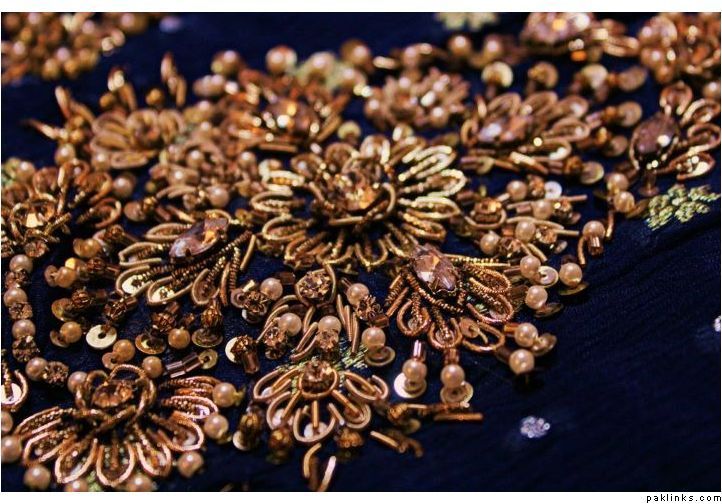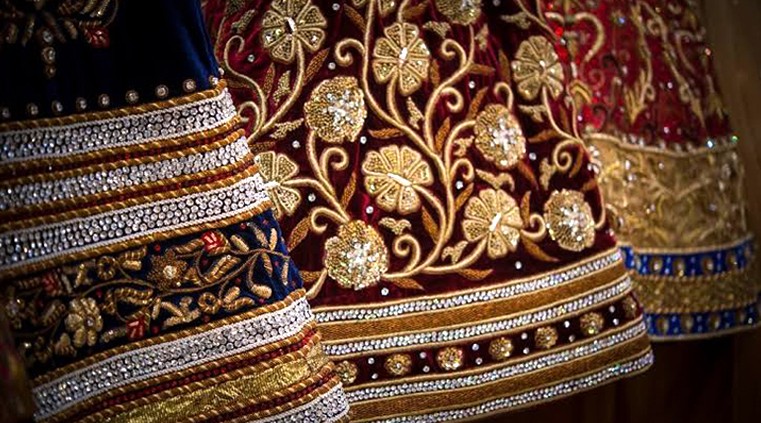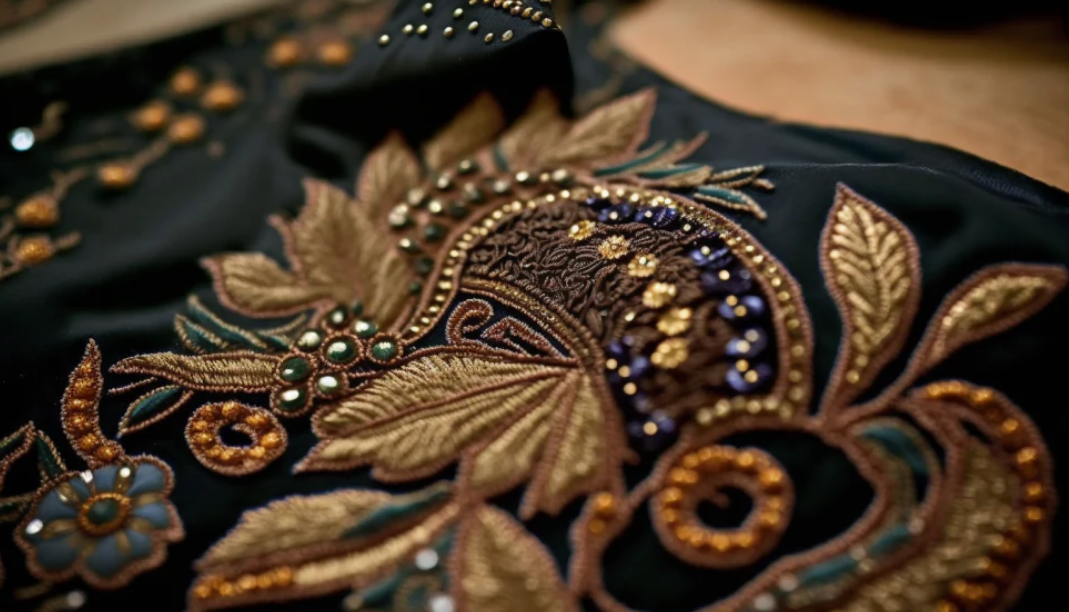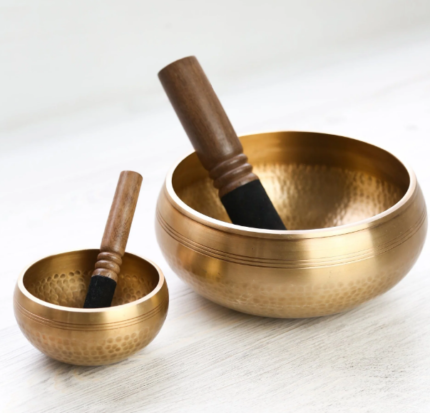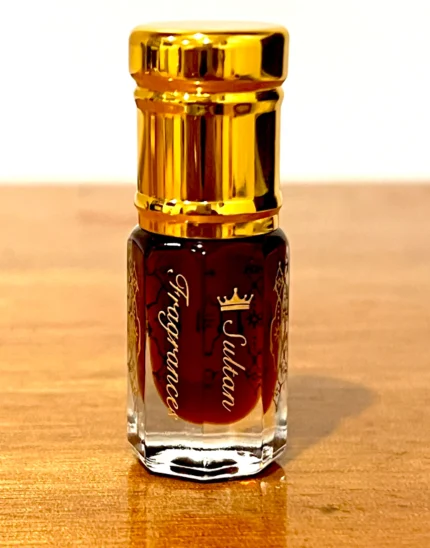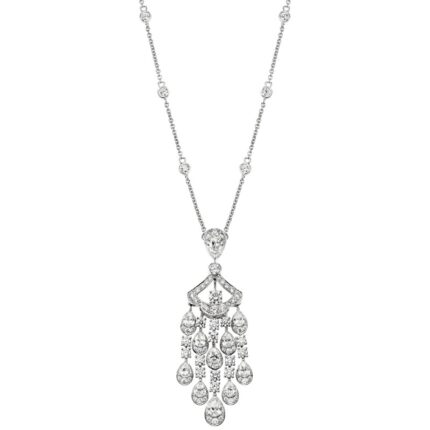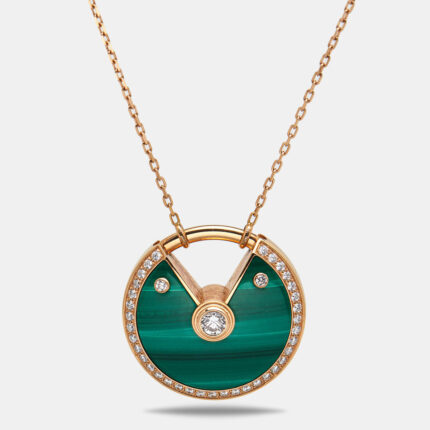Description
Zardozi is a form of metal-thread embroidery most famous in the state of Lucknow. It is also practiced in parts of Farrukhabad, Chennai, and Bhopal. The embroidery originated in Persia and it translates to ‘zar’ which means gold and ‘dozi’ meaning embroidery. It is a fine technique of embroidery which is used to add a touch of royalty to the fabric.
Zardozi traditionally uses threads made of gold, silver, or copper. The thread is held at the reverse side of the fabric, while the aari (needle) is held at the top. Along with the metallic threads, the craftsmen also use beads, pearls, sequins, precious and semi-precious stones to make intricate designs.
History and evolution
The art of zardozi embroidery goes back to ancient India. Even though the Zardozi as we know it today has Persian roots, silver and gold thread weaving was also done in ancient India. According to some historians, the Hiranya, or the sacred gold cloth, is the present-day equivalent of the zari embroidery. The 6th-century Acharanga Sutra, sacred Jain literature mentions that gold-embroidered clothes should not be used by the monks. Marco Polo in the 13th century writes about the fabrics ‘skillfully embroidered with gold and silver wire’ from the Tamil-Pandya kingdom.
According to various texts, the people who practiced the setting of embellishments with metallic wires were called zardoz workers. Zari was also mentioned by Shihab Al Umari, biographer of Muhammad Bin Tughlaq; as well as in the accounts of other medieval historians such as Ziauddin Barani, Ibn Batuta, etc. It was in the Futahat –i- Firozshahi that the word ‘Zardozi’ was used for the first time. However, it was during the Mughal rule that the gold and silver embroidery tradition reached its apex.

